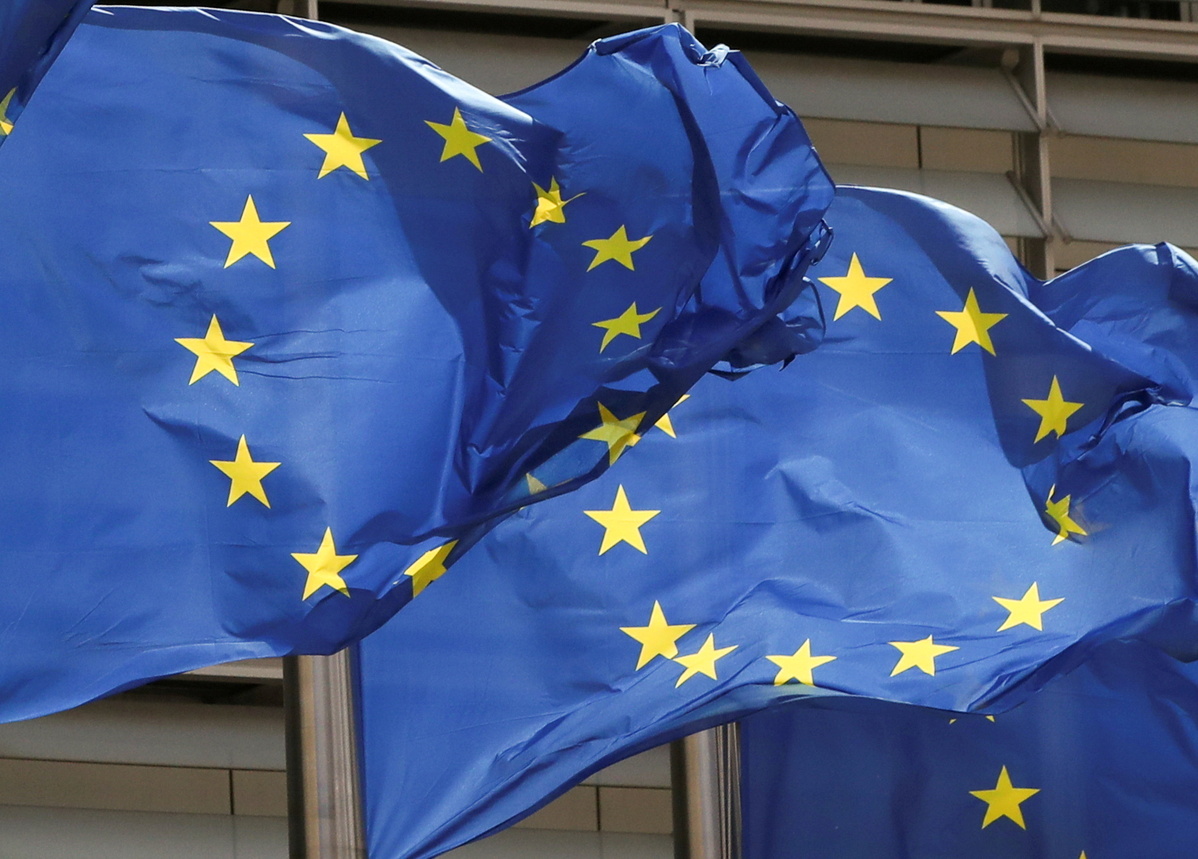EU's strategy for 'minimizing risks' misguided


The Joint Communication on European Economic Security Strategy, issued by the European Commission and the European Union's High Representative for Foreign Affairs on June 20, has put forth a detailed but misguided plan on "minimizing risks stemming" from certain economic flows.
The document urges member states to tighten export controls on technology that could be exploited by competitors, and further explicates worries about "countries of concern" harnessing artificial intelligence and quantum computing for military purposes, which is said to necessitate caution in sharing such technologies.
Not surprisingly, while the document avoids direct reference to China, it is difficult to ignore the prevailing China-centric context that underlies its content. The paper unabashedly adopts the perception of "de-risking," a policy ostensibly aimed at mitigating the potential hazards associated with the so-called "excessive" dependence on China's economy.
Yet the proposal of "de-risking "put forth by certain leaders in the EU is utterly misguided, as China poses no inherent risk whatsoever. In fact, it is the notion of economic security itself that is erecting unnecessary barriers to Chinese investment in the EU, thereby inversely affecting the interests of European companies.
Those advocating a pragmatic approach argue that the China-Europe relationship should be driven by practical cooperation rather than geopolitical maneuvering. According to the European Commission's website, the strategy acknowledges the rapidly evolving risks presented by specific economic connections in the current geopolitical and technological landscape. These risks are increasingly intertwined with security concerns, prompting the EU to adopt a rather cautious approach in identifying, evaluating and managing risks to its economic security.
However, this perspective fails to recognize that the true nature of these risks is not inherently tied to China.
By framing one of its largest trade partners, China, as a major source of concern, the EU is ignoring the broader context and potential benefits of engagement.
However, instead of succumbing to an overly cautious and adversarial mindset, European policymakers should strive for a more nuanced and balanced approach that prioritizes mutual understanding and collaboration.
The EU strategy, with its evaluation of economic security risks, aims to uncover vulnerabilities related to supply chains, energy security, critical infrastructure's physical as well as cyber security, and perils associated with technology leakage and the weaponization of economic dependencies.
Analysts have instead reminded the EU to watch out for such situations with its partner across the Atlantic Ocean, as the United States certainly should be crowned for economic sanctions and coercive policies against those unwilling to toe its line.
As per the EU economic security strategy paper, these potential risks predominantly stem from exports and investments that facilitate the transfer of valuable expertise to foreign adversaries in a limited range of crucial military-related technologies. Quantum computing, AI, biotechnology and robotics are all cited as prime examples of these domains.
The strategy document talks about the emergence of these risks and underscores the need for a vigilant approach in safeguarding vital European interests against potential threats. The narrative of "decoupling" or "de-risking" championed by certain European and US politicians appears to be out of touch with reality, as there remains ample space for constructive dialogue and collaboration between China and Europe across various sectors.
The EU simply cannot afford to sever its ties with China's industrial and supply chains, as no other country possesses comparable production capacity, processing capabilities and cost efficiency. Striking a balance between retaining the benefits of engagement and addressing concerns is undoubtedly a complex task for the EU.
In 2022, China was the largest partner for EU imports of goods, at 20.8 percent of the total, and the third-largest partner for EU exports of goods, at 9 percent, according to data from Eurostat.
As China and Europe undergo transformative shifts, their relationship should evolve accordingly. Embracing change is inevitable. The China-Europe connection is a progressive journey that should not be deterred by external factors — including Washington's interference.
The European Economic Security Strategy paper asks for an additional 10 billion euros ($10.9 billion) from EU member states, purportedly to support the development of "strategic technologies". This plea serves as the inaugural move by the European Commission to manipulate and cajole EU nations into endorsing its confrontational agenda.
However, evidently, there is much difference among the EU members on the concept of de-risking or decoupling.
European economies have suffered long from inflation, which could be reduced with increasing trade with China, the world's largest manufacturing base. If the EU wants to really stand on its own feet in strategic security, it should embrace multilateralism and strive for a more balanced and just world.
The author is an international affairs commentator and freelancer based in Karachi, Pakistan.



































